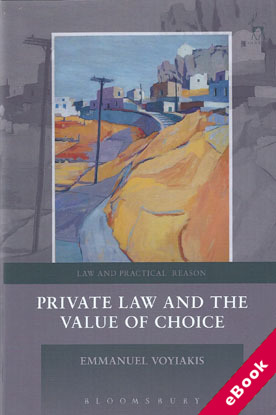
The device(s) you use to access the eBook content must be authorized with an Adobe ID before you download the product otherwise it will fail to register correctly.
For further information see https://www.wildy.com/ebook-formats
Once the order is confirmed an automated e-mail will be sent to you to allow you to download the eBook.
All eBooks are supplied firm sale and cannot be returned. If you believe there is a fault with your eBook then contact us on ebooks@wildy.com and we will help in resolving the issue. This does not affect your statutory rights.
Is the purpose of private law to correct wrongs? To promote just distributions? To enhance economic efficiency? Or to protect valuable moral practices and individual autonomy? Theorists have long suspected that all of these ideas may play some role in the justification of private law.
Many classical doctrines of contract and tort law seem consistent with wrong-correction and the protection of individual autonomy. Other doctrines, such as the payment of damages as a valid option for a contract party, seem more informed by efficiency considerations.
Modern statutory regimes for the protection of consumers, employees or insurance holders are typically understood as efforts to minimize disparities in the distribution of bargaining power across the community.
Described in those terms, private law emerges as a patchwork of different and largely independent justifications of varying breadth and applicability. This book argues that this description is mistaken. Its main thesis is that private law is best understood as having an aim that is both unifying and distinctive.
That aim is to articulate reasonably acceptable principles as to when our institutions can legitimately hold agents accountable for the choices they make in their transactions with one another. The moral centre of this account is the idea (proposed in general form by T.M. Scanlon) that the legitimacy of enforcement in the context of private transactions must depend on the value for parties to those transactions of being able to choose under conditions and from a range of alternatives that they could not reasonably reject as a basis for being held so accountable.
The proposed value-of-choice account has the potential to explain how wrong-correcting, distributive, efficiency and autonomy considerations can contribute to the justification of private law, namely by affecting the value of agents' choice, while structuring their relative contributions around a single and morally attractive idea.